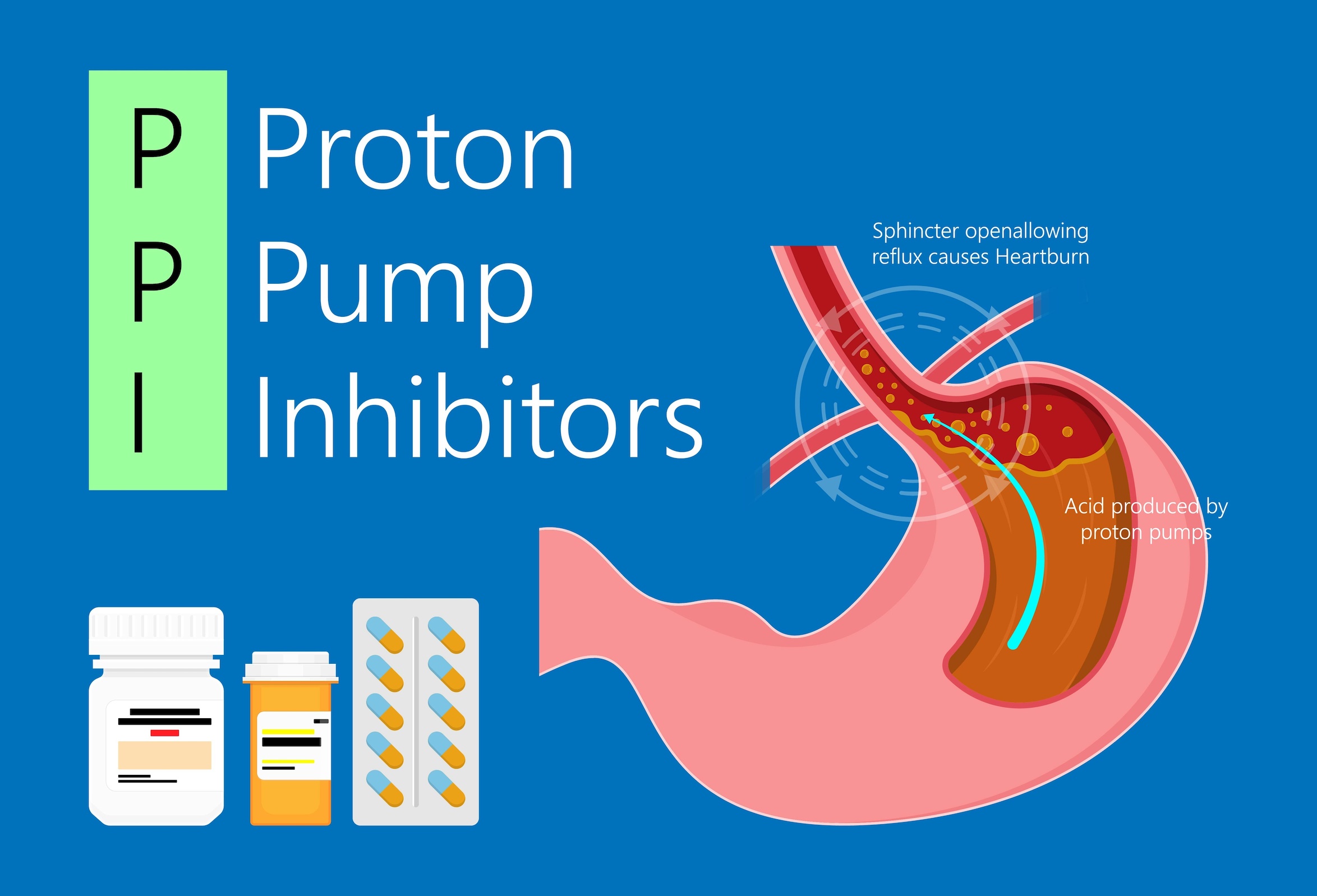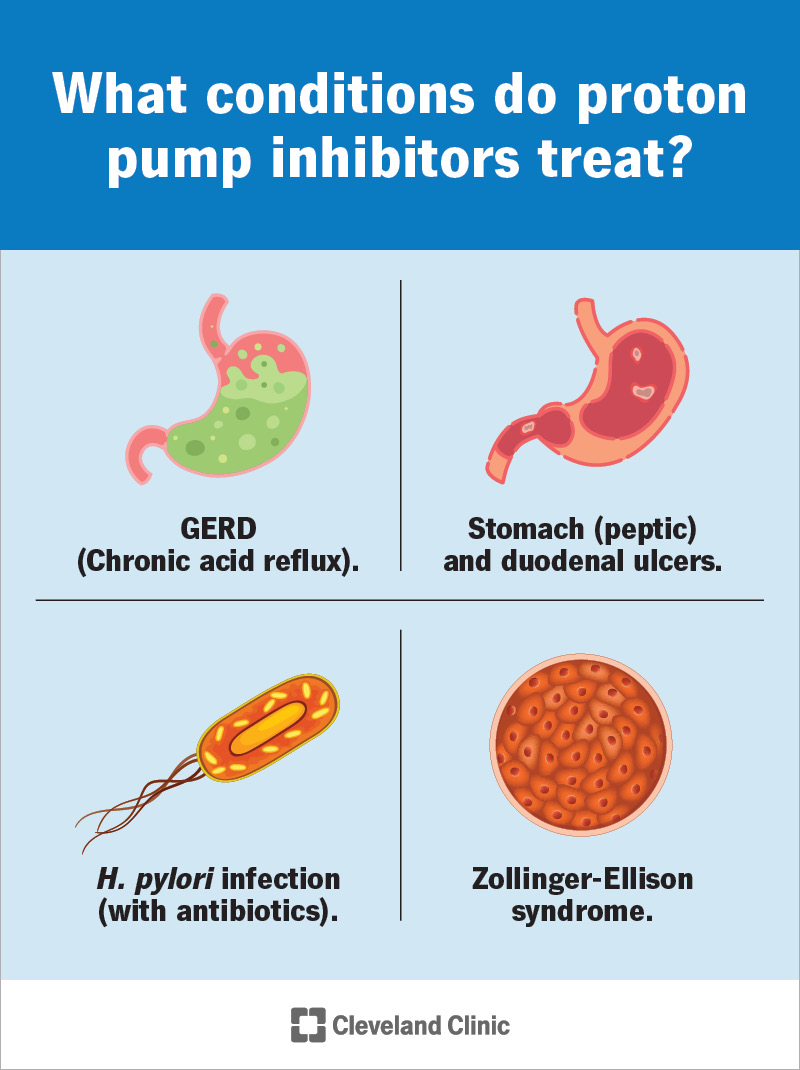Are you tired of dealing with the discomfort of acid reflux? If so, then proton pump inhibitors (PPIs) may be the solution you’ve been searching for. PPIs are medications that work by reducing the amount of acid produced in your stomach, providing long-term relief from the symptoms of acid reflux. In this article, we will explore how PPIs work, their effectiveness in treating acid reflux, and the potential side effects you should be aware of. Say goodbye to the burning sensation and say hello to a life free from acid reflux with the help of PPIs.
This image is property of my.clevelandclinic.org.
Overview of Proton Pump Inhibitors
Definition of PPIs
Proton Pump Inhibitors (PPIs) are a class of medications commonly prescribed for the treatment of acid reflux, also known as gastroesophageal reflux disease (GERD). PPIs work by reducing the production of stomach acid, which can help alleviate symptoms and promote healing of the esophagus.
Mechanism of Action
PPIs work by inhibiting the action of the proton pump enzyme in the stomach lining. This enzyme is responsible for the secretion of acid into the stomach. By blocking the proton pump, PPIs effectively reduce the production of acid in the stomach, leading to a decrease in acid reflux symptoms.
Commonly prescribed PPIs
There are several commonly prescribed PPIs available on the market. Some of the most widely used PPIs include omeprazole, esomeprazole, pantoprazole, lansoprazole, and rabeprazole. These medications are available in various forms, such as tablets, capsules, and oral suspensions, to suit individual needs and preferences.
Benefits of PPIs
Reduced Acid Production
One of the primary benefits of PPIs is their ability to significantly reduce the production of stomach acid. By decreasing acid levels, PPIs can provide relief from symptoms such as heartburn, regurgitation, and chest pain, which are commonly experienced by individuals with acid reflux.
Relief from Acid Reflux Symptoms
PPIs are highly effective in providing relief from the symptoms of acid reflux. By reducing the amount of acid in the stomach, PPIs can alleviate symptoms such as heartburn, belching, bloating, and nausea. This can greatly improve the quality of life for individuals suffering from acid reflux.
Healing of Esophageal Damage
Chronic acid reflux can cause damage to the lining of the esophagus, leading to conditions such as erosive esophagitis and Barrett’s esophagus. PPIs not only provide symptom relief but also promote the healing of esophageal damage. By reducing the acidity in the stomach, PPIs allow the esophageal tissue to heal and prevent further complications.
Long-term Use of PPIs
Recommended Duration of Treatment
PPIs are typically prescribed for short-term use, ranging from a few weeks to a few months. However, in cases where acid reflux is chronic or severe, long-term treatment with PPIs may be necessary. It is important to follow the healthcare provider’s recommendation regarding the duration of treatment to ensure optimal management of acid reflux symptoms.
Safety and Tolerability
PPIs are generally safe and well-tolerated when used correctly and under the guidance of a healthcare professional. However, like any medication, PPIs may have potential side effects, and long-term use may increase the risk of certain adverse events. It is important to discuss any concerns or questions with a healthcare provider to ensure the benefits of long-term PPI use outweigh the potential risks.
Potential Side Effects
Common side effects of PPIs include headache, nausea, diarrhea, and abdominal pain. These side effects are usually mild and transient. However, rare but more serious side effects, such as an increased risk of bone fractures and infections, have been associated with long-term PPI use. It is important to discuss any concerns or persistent side effects with a healthcare provider.
Effectiveness of PPIs in Acid Reflux Management
Symptom Resolution
Numerous clinical trials and studies have demonstrated the effectiveness of PPIs in resolving acid reflux symptoms. PPIs have been shown to significantly reduce the frequency and severity of symptoms such as heartburn and regurgitation. This can allow individuals to experience relief and improve their overall well-being.
Improvement of Quality of Life
Acid reflux can significantly impact an individual’s quality of life, affecting daily activities and overall satisfaction. Studies have shown that PPIs can greatly improve quality of life for individuals with acid reflux by reducing symptom severity, improving sleep quality, and reducing the need for other medications to manage symptoms.
Reduction in Esophageal Complications
Chronic acid reflux can lead to complications such as erosive esophagitis, Barrett’s esophagus, and esophageal strictures. PPIs have been shown to reduce the risk of these complications by promoting the healing of esophageal damage and reducing acid exposure. Regular use of PPIs can help prevent long-term complications and reduce the need for more invasive interventions.
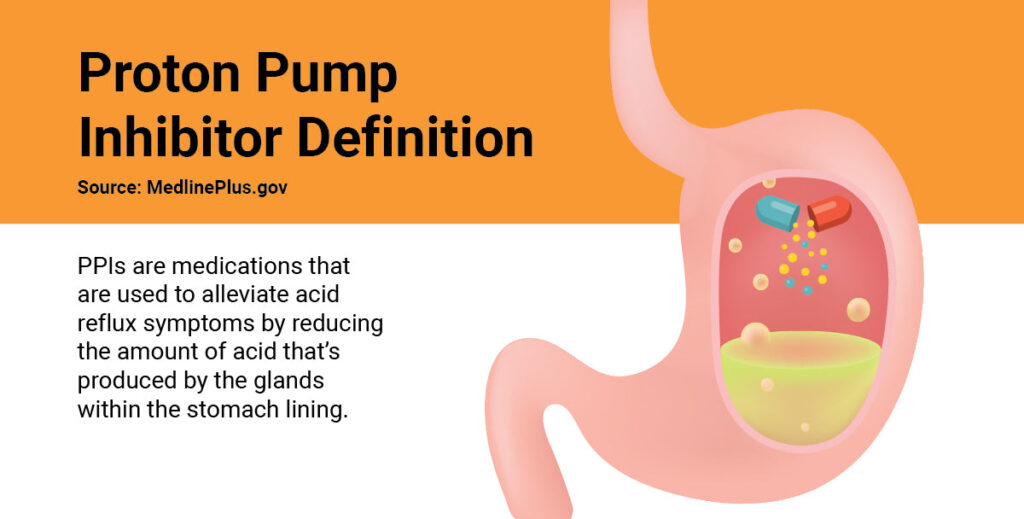
This image is property of cdn.shopify.com.
Comparing PPIs with Other Medications
H2 Blockers vs. PPIs
H2 blockers, such as ranitidine and famotidine, are another class of medications commonly used for acid reflux treatment. While both PPIs and H2 blockers work by reducing stomach acid production, PPIs are generally considered more effective and provide longer-lasting relief. PPIs are often prescribed when H2 blockers fail to adequately control symptoms or for individuals with more severe acid reflux.
Antacids vs. PPIs
Antacids, such as calcium carbonate and magnesium hydroxide, provide quick relief from acid reflux symptoms by neutralizing stomach acid. However, antacids only provide temporary relief and must be taken frequently throughout the day. PPIs, on the other hand, provide longer-lasting relief by reducing acid production. PPIs are generally recommended for individuals with more frequent and severe symptoms.
Prokinetic Agents vs. PPIs
Prokinetic agents, such as metoclopramide, work by improving the motility of the digestive system, reducing the backing up of stomach acid into the esophagus. While prokinetic agents can be effective in managing acid reflux symptoms, they are often reserved for specific cases and may have more side effects compared to PPIs. PPIs are considered a first-line treatment for acid reflux due to their proven efficacy.
Factors to Consider Before Taking PPIs
Diagnosis of Acid Reflux
Before starting PPI treatment, it is important to have a proper diagnosis of acid reflux by a healthcare professional. Other conditions, such as gastritis or peptic ulcers, can have similar symptoms but require different treatment approaches. A thorough evaluation and diagnosis will ensure that PPIs are the appropriate choice for managing your specific condition.
Understanding the Risks and Benefits
Like any medication, PPIs have both risks and benefits. It is important to understand and weigh these factors before starting long-term PPI treatment. Discussing the potential risks and benefits with a healthcare provider can help you make an informed decision and determine the most appropriate treatment plan for your individual needs.
Discussion with Healthcare Provider
Before starting or stopping any medication, it is crucial to have an open and honest discussion with your healthcare provider. They can provide personalized recommendations based on your medical history, current medications, and specific symptoms. Your healthcare provider will also monitor your progress and adjust your treatment plan as necessary to optimize your acid reflux management.
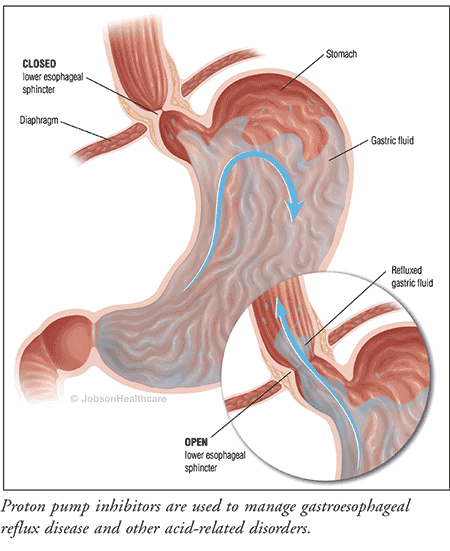
This image is property of www.uspharmacist.com.
Potential Risks and Precautions
Risk of Fractures
Long-term use of PPIs has been associated with a slightly increased risk of bone fractures, particularly in individuals over the age of 50. This risk is believed to be related to the potential interference with calcium absorption. It is important to discuss this risk with a healthcare provider, especially if you have any underlying conditions that may already increase the risk of fractures.
Increased Risk of Infections
Recent studies have suggested a potential association between long-term PPI use and an increased risk of certain infections, such as pneumonia and Clostridium difficile (C. difficile) infection. While the absolute risk is generally low, it is important to weigh this potential risk against the benefits of PPI treatment, especially in individuals with a higher susceptibility to infections.
Potential Drug Interactions
PPIs can interact with other medications, potentially affecting their efficacy or increasing the risk of side effects. It is important to inform your healthcare provider about all the medications you are currently taking, including over-the-counter medications, supplements, and herbal remedies. Your healthcare provider can evaluate potential drug interactions and adjust your treatment plan accordingly.
Tips for Using PPIs Effectively
Following the Recommended Dosage
It is crucial to take PPIs as prescribed by your healthcare provider. Follow the recommended dosage, frequency, and duration of treatment. Taking more than the prescribed dosage or extending the treatment period without medical guidance can increase the risk of side effects and may not provide additional benefits.
Taking PPIs at the Right Time
PPIs are most effective when taken on an empty stomach, usually about 30 minutes before a meal. This allows the medication to be absorbed properly and maximize its acid-reducing effects. Be sure to read the instructions provided with your specific PPI medication and follow the recommended administration guidelines.
Monitoring and Reporting Side Effects
While PPIs are generally well-tolerated, it is important to be aware of any potential side effects and promptly report them to your healthcare provider. Side effects such as persistent headache, severe abdominal pain, or changes in bowel habits should be evaluated by a healthcare professional to ensure appropriate management and adjustment of your treatment plan if necessary.
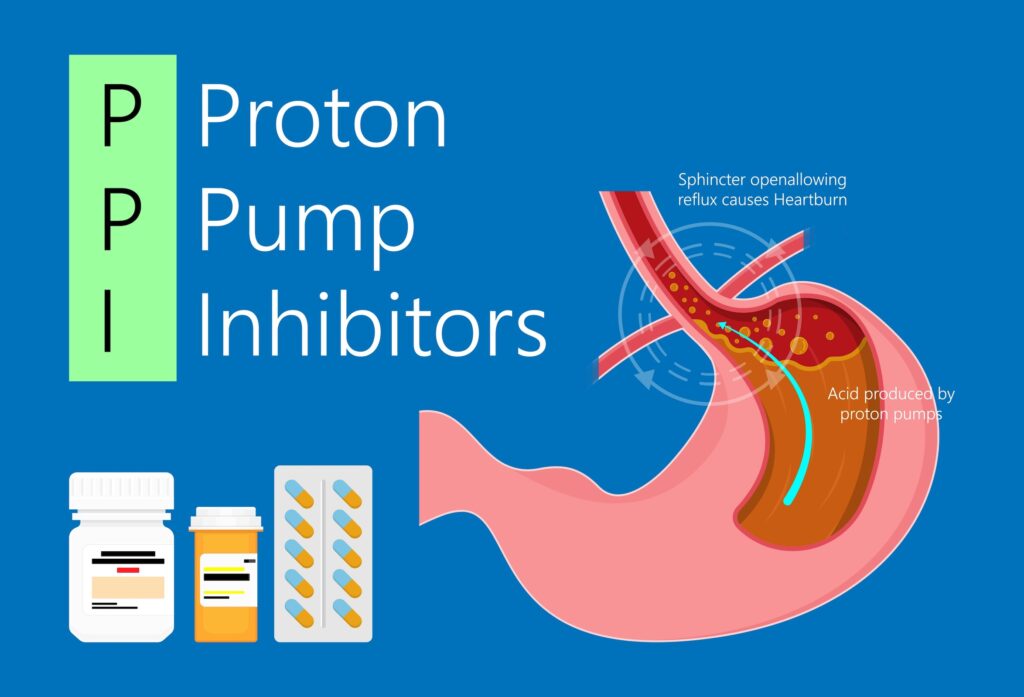
This image is property of www.integral-nutrition.co.uk.
Managing Acid Reflux through Lifestyle Changes
Diet Modifications
In addition to medication, lifestyle changes can play a significant role in managing acid reflux. Certain foods and beverages, such as citrus fruits, spicy foods, caffeine, and alcohol, can trigger symptoms. Adjusting your diet to avoid these triggers can help reduce the frequency and severity of acid reflux episodes. Working with a registered dietitian can provide guidance on an appropriate diet for your specific needs.
Weight Management
Maintaining a healthy weight can help reduce the frequency and severity of acid reflux symptoms. Excess weight can put pressure on the stomach, leading to increased acid reflux. Incorporating regular exercise and making dietary changes to achieve and maintain a healthy weight can have a positive impact on acid reflux management.
Elevating the Head of the Bed
Raising the head of the bed by placing blocks or using a wedge pillow can help prevent acid reflux during sleep. By elevating the head, gravity can help keep stomach acid from flowing back into the esophagus. This simple modification can significantly reduce nighttime symptoms and improve the overall quality of sleep.
Conclusion
PPIs offer long-term relief from acid reflux symptoms and can improve the quality of life for individuals suffering from this condition. With their ability to reduce acid production, provide symptom relief, and promote the healing of esophageal damage, PPIs are an effective option for acid reflux management. However, it is important to consult with a healthcare professional to determine the appropriate treatment plan, considering factors such as diagnosis, risks, benefits, and potential interactions. By combining the use of PPIs with lifestyle modifications, individuals can effectively manage acid reflux and enjoy a better quality of life.
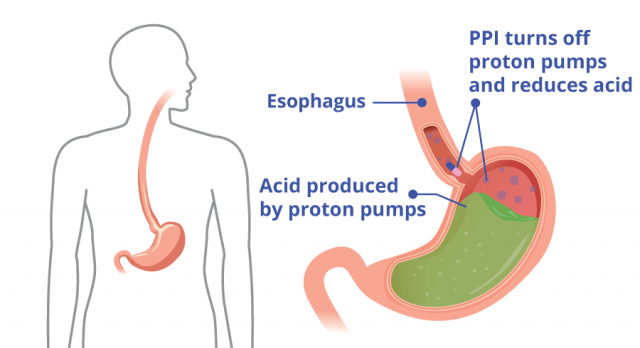
This image is property of www.drugwatch.com.
